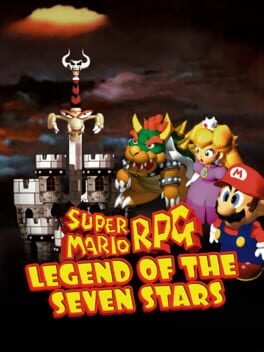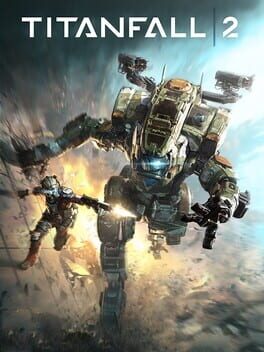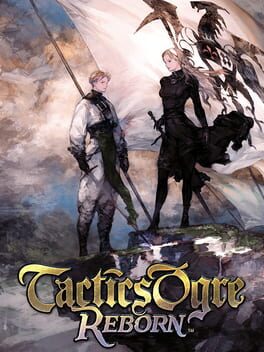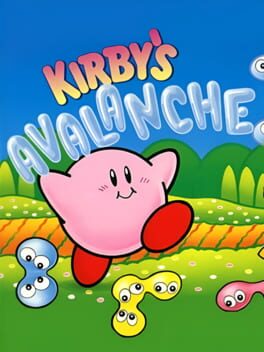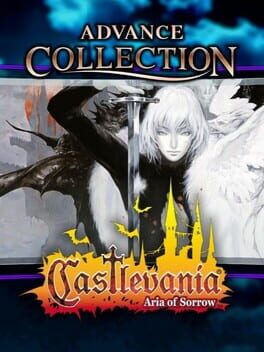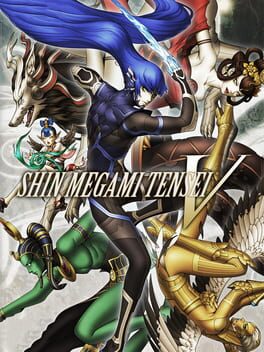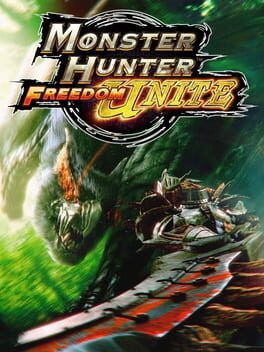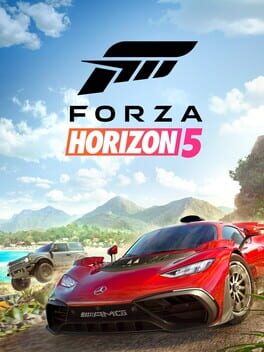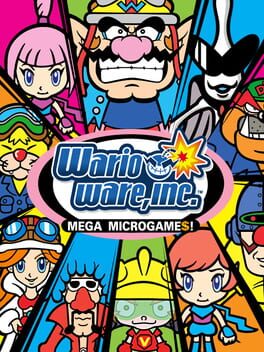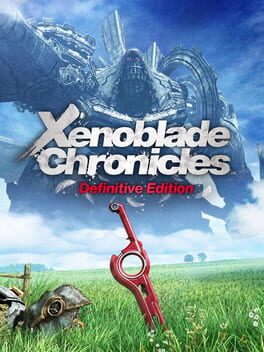96 Reviews liked by efrencito
Titanfall 2
2016
In life, we rarely get a chance to follow an art from its genesis to its conclusion. At the arse-end of history, we're often doomed to look at such things retrospectively - surrealism, rock & roll, postmodernism, the New York School of Poets, wild west movies, whatever - and wonder what it was like to evolve and ultimately ascend to atrophia in tandem with a creative movement.
Titanfall 2 is, therefore, a rare privilege. A game that has, with the retrospective power of its seven-year existence, definitively marked the end of an era that was carved out by Call of Duty thirteen years prior. Halo, Modern Warfare, Bioshock, Borderlands, Wolfenstein, the lot - I feel like it's fair to say that Titanfall 2 encompasses its own movement, the nature of its existence, and all the reasons it could not continue - where do you go beyond time? If you'll forgive the incredibly fucking pretentious analogy, Titanfall 2 is not unlike Let It Be, the final Beatles album that put the cap on a half-century of rock. (You could probably extrapolate this complete nonsense further and suggest that the corporate self-awareness of popstars popping up in Warzone and Fortnite mirrors the ironic MTV garage grunge of Kurt Cobain, but hey! - that would probably sustain an equally stupid Backloggd essay of its own.)
What makes Titanfall 2 rarer still is that it’s an ending to a now-lost artform that began with the same creator years prior. Infinity Ward may have respawned, but they were, at this conclusive point in time, the same unit of creation from 2003. Impressionism was started by guys like Claude Monet, but was drawn (painted?) to a close by Van Gogh, a conscious will that passed down a century, their art thankfully/tragically unaccelerated by lack of commercial interest. They say an artwork is never finished, but fortunately for us the future is far more financial than we originally projected - artistic movements can now be efficiently condensed into a decade of fiscal quarters. We can watch an artform rise and fall upon the plateau in the time it takes to finish a high school diploma, and that's neither a good thing nor a bad thing; just a thing that happens now. Let it be.
Sure, other militaristic first-person dual-weapon wall-running action shooters with automatic health recovery have come after Titanfall 2, but they're essentially invalid imitations, impressionist postcards that we pick up in the lobby of the Van Gogh Museum. They're the consequences of something that's gone for good. Never to return, for better and for worse.
Titanfall 2 is, therefore, a rare privilege. A game that has, with the retrospective power of its seven-year existence, definitively marked the end of an era that was carved out by Call of Duty thirteen years prior. Halo, Modern Warfare, Bioshock, Borderlands, Wolfenstein, the lot - I feel like it's fair to say that Titanfall 2 encompasses its own movement, the nature of its existence, and all the reasons it could not continue - where do you go beyond time? If you'll forgive the incredibly fucking pretentious analogy, Titanfall 2 is not unlike Let It Be, the final Beatles album that put the cap on a half-century of rock. (You could probably extrapolate this complete nonsense further and suggest that the corporate self-awareness of popstars popping up in Warzone and Fortnite mirrors the ironic MTV garage grunge of Kurt Cobain, but hey! - that would probably sustain an equally stupid Backloggd essay of its own.)
What makes Titanfall 2 rarer still is that it’s an ending to a now-lost artform that began with the same creator years prior. Infinity Ward may have respawned, but they were, at this conclusive point in time, the same unit of creation from 2003. Impressionism was started by guys like Claude Monet, but was drawn (painted?) to a close by Van Gogh, a conscious will that passed down a century, their art thankfully/tragically unaccelerated by lack of commercial interest. They say an artwork is never finished, but fortunately for us the future is far more financial than we originally projected - artistic movements can now be efficiently condensed into a decade of fiscal quarters. We can watch an artform rise and fall upon the plateau in the time it takes to finish a high school diploma, and that's neither a good thing nor a bad thing; just a thing that happens now. Let it be.
Sure, other militaristic first-person dual-weapon wall-running action shooters with automatic health recovery have come after Titanfall 2, but they're essentially invalid imitations, impressionist postcards that we pick up in the lobby of the Van Gogh Museum. They're the consequences of something that's gone for good. Never to return, for better and for worse.
Tactics Ogre: Reborn
2022
Went into this thinking there was no way I wouldnt love Tactics Ogre? I love turn based and strategy games, this is a classic, the art is gorgous, what could go wrong?
Unfortunately bounced off pretty hard due to how slow this game is in every facet. Fights are very slow-paced - movement speeds are low, damange numbers are low, hp pools are high - which, for me, made proper planning and strategizing very difficult. If flanking an enemy takes 8 turns, maybe deathballing down the middle and slowly grinding out the W becomes the more attractive option.
The campaign is slow as well. Everyone is very wordy (not a negative, just adds to the pacing of the game) and there are a lot of filler engagements between plot moments.
Even recruiting new teammates takes forever: Weaken the enemy, get the right character with the right ability into position, use the ability (which is a % chance, and not a kind one), fail, tank their damage, heal up, use the ability again, repeat. Bonus frustration guaranteed when you have an AI controlled Guest character in the party, who sees the 5 hp dragon you were trying to recruit and decides their big moment is now.
There is still a very solid strategy game in there, the plot is interesting & politically complex for its time, AND you can recruit an octopus, who are the best animals! But I thought I would obsess over this, and instead I just kinda like it a bit
Unfortunately bounced off pretty hard due to how slow this game is in every facet. Fights are very slow-paced - movement speeds are low, damange numbers are low, hp pools are high - which, for me, made proper planning and strategizing very difficult. If flanking an enemy takes 8 turns, maybe deathballing down the middle and slowly grinding out the W becomes the more attractive option.
The campaign is slow as well. Everyone is very wordy (not a negative, just adds to the pacing of the game) and there are a lot of filler engagements between plot moments.
Even recruiting new teammates takes forever: Weaken the enemy, get the right character with the right ability into position, use the ability (which is a % chance, and not a kind one), fail, tank their damage, heal up, use the ability again, repeat. Bonus frustration guaranteed when you have an AI controlled Guest character in the party, who sees the 5 hp dragon you were trying to recruit and decides their big moment is now.
There is still a very solid strategy game in there, the plot is interesting & politically complex for its time, AND you can recruit an octopus, who are the best animals! But I thought I would obsess over this, and instead I just kinda like it a bit
Kirby's Avalanche
1995
Shin Megami Tensei V
2021
Shin Megami Tensei has historically been a franchise hostile to progress, in a lot of ways. It’s one of those JRPG franchises that famously stuck to its wizardry-like roots much longer and more intensely than many others, with a staunch air of difficulty, occasional built-in unfairness, intentional obscurity to its complex systems. It extends to the way they’re produced, reusing art assets for as many projects as possible (some of those demon models from Nine made it into what, eight or nine games?), sticking closely to certain themes and archetypes and structures and play elements. It extends to their aesthetic, which has a distinctly analogue, 90s techno edgelord vibe to it, more at home with Hackers and The Matrix even as late as 2017 than with its contemporaries. It extends to their worldview, which despite often trying to offer three or more endings along a more morally ambiguous spectrum of ideology than most RPGs are always deeply and cynically conservative no matter how they are expressed. Few of these traits are unique to SMT, but they are all true of it, which is what makes Shin Megami Tensei V simultaneously feel like a tremendous breath of fresh air and a huge waste of potential.
There’s a very clear attempt here (and, I think, it’s largely successful!) to finally make good on the threats of SMT4 and all of those fancy 3DS remakes and actually, from scratch, make one of these that feels like it belongs in the year it came out. The game plays like fuckinnn like BUTTAH dude, it’s smooth as hell. Dozens of little tweaks to the way SMT works with skills and fusions and stats and everything, mostly feel really minor in the moment but add up to a game with a very distinct play loop from its predecessors. I don’t know that I would say it’s my favorite-playing one, but the quality of life features rule pretty much across the board, and tweaks to the way everything works have led to essentially a whole new battle format for bosses that requires probably the most strict understanding of the mechanics, your team, and resource management I’ve seen from the series. It’s really well-balanced in general. Didn’t get tired of it in 70 hours.
I’m generally less enamored with the world design than a lot of other people I’ve talked to. I think it’s novel, sure, and I do like jumping around, but outside of the one dungeon that does ask you to really be aware of vertical space and make puzzles out of platforming sections, I think the big sandbox areas get a little too difficult to navigate? There were times I had to find my way back to a quest giver to turn the quest in and I just could not for the life of my figure out how to get back to where they were. That’s my only real gripe with the navigation though, I quite like the way the game looks. SMT has always had a great command of its world design, down to the colors and the geometry (like, literal shapes I mean, these games have lots of shapes, not geometry as we usually mean it when we talk about video games lol), and I think that’s largely intact here. If it’s less impactful than it has been in the past I think that’s MOSTLY because so many other games have bit off SMT’s aesthetics over the years. No game will ever look as good as the PS2 SMTs that’s just impossible but the style and direction they landed on here absolutely slaps. JUST LIKE THE MUSIC, nonstop wall to wall sick shit, an amalgamation of pretty much every style you’ve heard across the series with a tasteful number of tastefully done remixes thrown in there. Nice shit nice shit. Love it.
Earlier I said that these games were generally hostile to Progress but I think they are additionally hostile to Modernity. As much as I’ve complimented a lot of the updates to the game, the visuals, etc, that make it feel like A Twenty-Twenty-One Video Game, I can’t help but feel like it’s at the same time a victim of the desire to be that too. Everywhere I look I wonder what the game could have been if certain corners had been cut in favor of others. I finished the game like fifteen minutes ago so I haven’t seen any actual discussion of the narrative but I HAVE seen a lot of vague rumblings that people are dissatisfied with the story and characters, and specifically with how underbaked they seem to be. And this is kind of a trend you see across the board with big budget choice-based RPGs these days, right? ESPECIALLY when they’re first making the transition from text-heavy, limited-to-no voice acting formats to big fancy 3D console friendly sequels. The way these games are constructed just makes the amount of writing necessary to keep this stuff interesting and the amount of money necessary to create assets and pay actors to read lines increases exponentially in this space. Gamers will point to The Witcher 3 as a game that pulled it off but not as often mention that that game was fueled by the infinite money hose of “owning GOG” and also the murderous work conditions of the developer. So like yeah we get these big, intricately designed maps and these beautiful visuals because that’s what it takes to be AAA now but it comes at the expense of what I’ve always found to be a pretty compelling, core part of these games.
I’m of two minds about that, even, because like, on one hand it’s a bummer, right? SMTV is in a lot of ways playing in spaces I’ve been begging these games to since Nocturne, making a real effort to offer a more nuanced and compassionate take on the morality system that’s not quite so draconian or informed by a patina of college freshmen libertarian edge. It sucks that there’s not more room to develop that stuff here, or more episodes that flesh out the world outside of a handful of late game sidequests. The entire second area feels like the seed of what should have been a lot more moments exploring ideologies and factions that never really materialize even after they’re formally introduced, largely boiled down to individual, perfunctory boss encounters mere moments after they show up for the first time.
On the flip side though, Nerd Culture is real and it has I think destroyed a lot of things about the way we view fiction that SMT used to be good at and I see enough of that reflected in V that I don’t know that I would like it if I got more than I did honestly. SMT has always been a series that thrives on ambiguity and vibes. More about what you’re feeling than what you know. So for V to come in and do a lot of work towards formally canonizing and making coherent a lot of the disparate multiversal lore that’s been dripfed over the decades worries me a bit. On one hand it gives the game a chance to kind of premise and conclude itself in bold directions that are honestly very cool and make me hope that an SMT VI might make even more radical story departures someday, but on the other hand, I strongly feel that SMT is not a universe to be solved, and I would really prefer to retain the ephemeral nature of the setting.
So that’s a lot of writing about what if and could have beens but I DO think this game is pretty sick. I had a great time actually playing with it, and just because I’m disappointed on a macro level doesn’t mean I dislike the game. It’s still absolutely loaded with signature SMT shit, and a lot of care was put into little details throughout. The localization is snappy, the way the game tries to zigzag you with the character alignments is very cute even if it’s completely ineffective, Shigenori Soejima’s character designs are fitting in better than ever (even if they do lean a little more into Generic Sci Fi Anime Guy on the non-demons than I would prefer). It’s a good game. It’s just hard not to imagine a better game I think we might have the SMT name wasn’t such an institution. I mean, I certainly wouldn’t want to be the bitch making SMT V that’s for sure, and all things considered I think they really pulled it off.
There’s a very clear attempt here (and, I think, it’s largely successful!) to finally make good on the threats of SMT4 and all of those fancy 3DS remakes and actually, from scratch, make one of these that feels like it belongs in the year it came out. The game plays like fuckinnn like BUTTAH dude, it’s smooth as hell. Dozens of little tweaks to the way SMT works with skills and fusions and stats and everything, mostly feel really minor in the moment but add up to a game with a very distinct play loop from its predecessors. I don’t know that I would say it’s my favorite-playing one, but the quality of life features rule pretty much across the board, and tweaks to the way everything works have led to essentially a whole new battle format for bosses that requires probably the most strict understanding of the mechanics, your team, and resource management I’ve seen from the series. It’s really well-balanced in general. Didn’t get tired of it in 70 hours.
I’m generally less enamored with the world design than a lot of other people I’ve talked to. I think it’s novel, sure, and I do like jumping around, but outside of the one dungeon that does ask you to really be aware of vertical space and make puzzles out of platforming sections, I think the big sandbox areas get a little too difficult to navigate? There were times I had to find my way back to a quest giver to turn the quest in and I just could not for the life of my figure out how to get back to where they were. That’s my only real gripe with the navigation though, I quite like the way the game looks. SMT has always had a great command of its world design, down to the colors and the geometry (like, literal shapes I mean, these games have lots of shapes, not geometry as we usually mean it when we talk about video games lol), and I think that’s largely intact here. If it’s less impactful than it has been in the past I think that’s MOSTLY because so many other games have bit off SMT’s aesthetics over the years. No game will ever look as good as the PS2 SMTs that’s just impossible but the style and direction they landed on here absolutely slaps. JUST LIKE THE MUSIC, nonstop wall to wall sick shit, an amalgamation of pretty much every style you’ve heard across the series with a tasteful number of tastefully done remixes thrown in there. Nice shit nice shit. Love it.
Earlier I said that these games were generally hostile to Progress but I think they are additionally hostile to Modernity. As much as I’ve complimented a lot of the updates to the game, the visuals, etc, that make it feel like A Twenty-Twenty-One Video Game, I can’t help but feel like it’s at the same time a victim of the desire to be that too. Everywhere I look I wonder what the game could have been if certain corners had been cut in favor of others. I finished the game like fifteen minutes ago so I haven’t seen any actual discussion of the narrative but I HAVE seen a lot of vague rumblings that people are dissatisfied with the story and characters, and specifically with how underbaked they seem to be. And this is kind of a trend you see across the board with big budget choice-based RPGs these days, right? ESPECIALLY when they’re first making the transition from text-heavy, limited-to-no voice acting formats to big fancy 3D console friendly sequels. The way these games are constructed just makes the amount of writing necessary to keep this stuff interesting and the amount of money necessary to create assets and pay actors to read lines increases exponentially in this space. Gamers will point to The Witcher 3 as a game that pulled it off but not as often mention that that game was fueled by the infinite money hose of “owning GOG” and also the murderous work conditions of the developer. So like yeah we get these big, intricately designed maps and these beautiful visuals because that’s what it takes to be AAA now but it comes at the expense of what I’ve always found to be a pretty compelling, core part of these games.
I’m of two minds about that, even, because like, on one hand it’s a bummer, right? SMTV is in a lot of ways playing in spaces I’ve been begging these games to since Nocturne, making a real effort to offer a more nuanced and compassionate take on the morality system that’s not quite so draconian or informed by a patina of college freshmen libertarian edge. It sucks that there’s not more room to develop that stuff here, or more episodes that flesh out the world outside of a handful of late game sidequests. The entire second area feels like the seed of what should have been a lot more moments exploring ideologies and factions that never really materialize even after they’re formally introduced, largely boiled down to individual, perfunctory boss encounters mere moments after they show up for the first time.
On the flip side though, Nerd Culture is real and it has I think destroyed a lot of things about the way we view fiction that SMT used to be good at and I see enough of that reflected in V that I don’t know that I would like it if I got more than I did honestly. SMT has always been a series that thrives on ambiguity and vibes. More about what you’re feeling than what you know. So for V to come in and do a lot of work towards formally canonizing and making coherent a lot of the disparate multiversal lore that’s been dripfed over the decades worries me a bit. On one hand it gives the game a chance to kind of premise and conclude itself in bold directions that are honestly very cool and make me hope that an SMT VI might make even more radical story departures someday, but on the other hand, I strongly feel that SMT is not a universe to be solved, and I would really prefer to retain the ephemeral nature of the setting.
So that’s a lot of writing about what if and could have beens but I DO think this game is pretty sick. I had a great time actually playing with it, and just because I’m disappointed on a macro level doesn’t mean I dislike the game. It’s still absolutely loaded with signature SMT shit, and a lot of care was put into little details throughout. The localization is snappy, the way the game tries to zigzag you with the character alignments is very cute even if it’s completely ineffective, Shigenori Soejima’s character designs are fitting in better than ever (even if they do lean a little more into Generic Sci Fi Anime Guy on the non-demons than I would prefer). It’s a good game. It’s just hard not to imagine a better game I think we might have the SMT name wasn’t such an institution. I mean, I certainly wouldn’t want to be the bitch making SMT V that’s for sure, and all things considered I think they really pulled it off.
perfect game to have installed on your 3DS on the side so you can check on your dogs whenever you're bored for like 20 minutes, for that alone I feel like it works better than the DS ones as a concept.
Sadly they made the walk sections a lot more boring and empty and i can't forgive them for that, the cats are also basically dogs with a cat model and that's messed up
Sadly they made the walk sections a lot more boring and empty and i can't forgive them for that, the cats are also basically dogs with a cat model and that's messed up
Ice Hockey
1988
Forza Horizon 5
2021
After some time playing through the game I realized it would never get better.
FH5 is the final GaaSification of the Horizon formula. Just an endless tangle of player retention mechanics crawling over each other in the form of weekly, daily and seasonal tasks, missable cars, an ever present roulette spin for every time you level up, car-specific XP rewards, forzathon points grind, and probably more I'm just missing. Everything fits together and creates a system to keep the player paying for Gamepass, and just goes to show how much harm this business model could do to the quality of AAA launches.
The story is genuinely one of the most embarrassing things I've ever put up with, and a lot of it is non-skippable at that. T10 really went all out to show what it thinks about the player with its cringe, corporate, safe, lifeless dialog, filled with non-characters that are borderline racist caricatures and just won't shut up (Trust me, I tried. The character voice volume slider doesn't even work).
Story events are a huge pain to go through and what's worse is they aren't even fun on their own. Exhibition events got way too big and they're just lifeless and goofy scripted 5 minute stretches at this point. There was a moment of realization when I played the monster truck event where you have to knock some giant bowling pins where it struck me, there's no more denying to it, the target audience's age for the game went down at least 10 years since FH1.
The game perfected the physics and the driving sensations, now enhanced by the vibrating triggers on the Series S/X. That's a big plus and something really solid in the game. There's a big amount of cars (even if the DLC is prohibitely expensive) and despite the absence of a few big brands, it's generally a good job even if some of the models are now generations old. That said, there's a lot of customization options on each car and seeing a lot of them have special body kits now is quite good and allows for a lot of player expression.
However as it comes to the racing itself, it's a game where nothing matters anymore. Railings, trees, stone walls, doesn't matter, the car will just destroy it and carry on. There isn't even almost any traffic at all unless you select a specific offline mode. It is a frustration free package, races are extremely short and rarely ever go past the 3 laps. No thought required, no learning curve of any sort while offline. Online is just rolling the meta car with the meta tune and trying not to get punted out of the track.
Visually the game looks really, really good. Really blows me away at times, it also makes a great use of the console's SSD, making fast travel almost instant.
There are also a lot of bugs in the game. I remember playing it a month or two after release and being unable to fast travel and then drive. The controller would stop responding in game requiring a restart. The text-to-speech would also activate on the main menu screen and the option to turn it off wouldn't work. This still happens.
There are a lot of legacy issues coming straight from FH4 and FH3 even. Namely the auction house still being broken. The controller remap menu still being pretty much useless and even some cars being listed as barn finds (but actually aren't) because apparently they forgot changing that from one of the previous games where they actually were barn finds.
The music choices were interesting. Overall I'm not a fan of it but I took a couple songs for my personal playlists. Listening to the radio stations absolutely butcher already tame songs to fit that E for Everyone rating was some sort of salt on the wound when you pair it with the literal Fortnite dances, the goofy character costumes and the hypercars doing off road, cartoonish stunts to an announcer calling your avatar a superstar in spanglish.
Overall I'm just really unimpressed with the game. I consider it one of the most disgusting things I've ever played and a biopsy of the cancer that eats away the AAA sector. The actual one with the 10/10s, not the latest EA flop people will bash anyways.
FH5 is the final GaaSification of the Horizon formula. Just an endless tangle of player retention mechanics crawling over each other in the form of weekly, daily and seasonal tasks, missable cars, an ever present roulette spin for every time you level up, car-specific XP rewards, forzathon points grind, and probably more I'm just missing. Everything fits together and creates a system to keep the player paying for Gamepass, and just goes to show how much harm this business model could do to the quality of AAA launches.
The story is genuinely one of the most embarrassing things I've ever put up with, and a lot of it is non-skippable at that. T10 really went all out to show what it thinks about the player with its cringe, corporate, safe, lifeless dialog, filled with non-characters that are borderline racist caricatures and just won't shut up (Trust me, I tried. The character voice volume slider doesn't even work).
Story events are a huge pain to go through and what's worse is they aren't even fun on their own. Exhibition events got way too big and they're just lifeless and goofy scripted 5 minute stretches at this point. There was a moment of realization when I played the monster truck event where you have to knock some giant bowling pins where it struck me, there's no more denying to it, the target audience's age for the game went down at least 10 years since FH1.
The game perfected the physics and the driving sensations, now enhanced by the vibrating triggers on the Series S/X. That's a big plus and something really solid in the game. There's a big amount of cars (even if the DLC is prohibitely expensive) and despite the absence of a few big brands, it's generally a good job even if some of the models are now generations old. That said, there's a lot of customization options on each car and seeing a lot of them have special body kits now is quite good and allows for a lot of player expression.
However as it comes to the racing itself, it's a game where nothing matters anymore. Railings, trees, stone walls, doesn't matter, the car will just destroy it and carry on. There isn't even almost any traffic at all unless you select a specific offline mode. It is a frustration free package, races are extremely short and rarely ever go past the 3 laps. No thought required, no learning curve of any sort while offline. Online is just rolling the meta car with the meta tune and trying not to get punted out of the track.
Visually the game looks really, really good. Really blows me away at times, it also makes a great use of the console's SSD, making fast travel almost instant.
There are also a lot of bugs in the game. I remember playing it a month or two after release and being unable to fast travel and then drive. The controller would stop responding in game requiring a restart. The text-to-speech would also activate on the main menu screen and the option to turn it off wouldn't work. This still happens.
There are a lot of legacy issues coming straight from FH4 and FH3 even. Namely the auction house still being broken. The controller remap menu still being pretty much useless and even some cars being listed as barn finds (but actually aren't) because apparently they forgot changing that from one of the previous games where they actually were barn finds.
The music choices were interesting. Overall I'm not a fan of it but I took a couple songs for my personal playlists. Listening to the radio stations absolutely butcher already tame songs to fit that E for Everyone rating was some sort of salt on the wound when you pair it with the literal Fortnite dances, the goofy character costumes and the hypercars doing off road, cartoonish stunts to an announcer calling your avatar a superstar in spanglish.
Overall I'm just really unimpressed with the game. I consider it one of the most disgusting things I've ever played and a biopsy of the cancer that eats away the AAA sector. The actual one with the 10/10s, not the latest EA flop people will bash anyways.
Forza Horizon 5
2021
nintendo's R&D1 began experimenting heavily with the form of the platformer with wario land 2 and 3: each games that attempted to remove typical fail states by making the protagonist invincible and able to acquire temporary abilities after touching specific enemies. while bold puzzle-platformers and generally excellent 8-bit titles, they still hewed close to typical loops of gameplay centered around replaying sections of stages until a goal state is achieved, thus nullifying the practical effects of the absence of player health or damage. their first title on the gba seemed to recognize this and shifted its rejection of form to averting the traditional mario-chartered methodology of building challenge and design iteratively over the course of the game by instead abruptly shifting focus and mechanics between levels. while rooted in the idioms of the prior two wario land entries, WL4 was flippant in how it approached challenges based on these predefined player mechanics, and it rejected both the narrative cohesion of WL2 and the rich environmental persistence of WL3 in favor of rapidly defying player expectations with incongruous level concepts and its frog pillar mechanic that required the player to quickly reevaluate the level in reverse once reaching its endpoint. thus began a trilogy of standout GBA titles where R&D1 deconstructed commonly-held design principles of gaming in order to produce shocking, absurd, and creative experiences.
warioware inc. is where that absurdism really comes into its own. at its root much of gaming involves the player applying their intuition based on real-world experiences to in-game conflicts using a built-in toolkit. games that deviate too far from logical or sensible principles may be seen as obtuse, while games that lean heavily on a player's knowledge of genre conventions may be considered "gamey." warioware leverages this intuition application as a reflex-based game of skill: recontextualize your understanding of the goal state and your toolkit, and do it so fast and naturally that it becomes automatic. that single word or phrase projected at the start of each round instantly locks the player into that goal state, and within an instant of seeing their surroundings they should understand how they can achieve that goal and what the interface may be to perform the actions required. shake a dog's paw, pick your nose, shoot down aliens, match the shape, catch the baseball, chop the block, collect the mushroom, count the frogs, jump the hurdle, dodge the arrows. in the collection of these instances and all others present in the game, the vast breadth of human experience is discretized and miniaturized into flashes of memory. this game is tailor-made to fire as many different synapses in rapid succession as possible.
surrounding this genius distillation of the gaming experience itself is this eccentric framing device of games themselves, mass-produced and advertised to you through the screen, or veering into real-life alternative gaming experiences than the one in your hands as you work your way through the game. aptly the game presents its user interface as a mock desktop, featuring the loosely-connected sets of games into neat little folders for you to work through. each character presents their own idiosyncratic narrative to their gaming experience; my favorite of the bunch is dribble and spitz's Taxi Driver homage that translates the endless neon corridors to a sloshy windshield and a fuzzy car radio, with games flying at you through the haze. they drive their passenger (supposedly you) to the sea, where they proceed to turn into a mermaid and dive into the depths, much to the driving duo's delight. other stories range the spectrum from kat and ana's downright traditional journey through the floors of a shiro to mona's frenzied pizza delivery route where she kills pursuing cops by the dozen.
on its own these pieces would be sufficient for something truly interesting, but warioware elevates the experience through a natural high-score mentality and drive to keep the player engaged and toying around with all of the content. many more microgames unlock in the post-game, where you can endlessly play a character's collection until you run out of health. although your first playthrough of each will end at the boss stage, these boss stages serve as cycle-enders in repeat attempts, where new cycles push the difficulty higher for each individual microgame. suddenly the context you understood for a given microgame is purposefully subverted to further test your reflexes and/or patience. as the speed increases and the microgame flow becomes more hectic, what seemed like cut-and-dry microgames become sweat-inducing tests of pushing that intuition-swap ability to the peak of its potential, and in the process rewiring your brain every precious couple of seconds.
I'm able to gush so thoroughly about this debut in particular because I feel no later entry ever managed to top it. beyond this the warioware series became nintendo's playground for testing out their array of control gimmicks, and thus the games themselves became entirely beholden to the constraints of those input methods. while I imagine their goal was to deepen the interactivity with each microgame, the limits of waggling a wiimote or tapping a screen choked that incredible spark of creativity that they exhibited so genuinely here. the gamepad is already universally the understood abstraction of choice of varied gameplay mechanics, and R&D1 tapped into our inherent connection to it as gamers to make something that not only celebrated games as a form, but refined it to a microscopic, perfectly shaped pearl.
warioware inc. is where that absurdism really comes into its own. at its root much of gaming involves the player applying their intuition based on real-world experiences to in-game conflicts using a built-in toolkit. games that deviate too far from logical or sensible principles may be seen as obtuse, while games that lean heavily on a player's knowledge of genre conventions may be considered "gamey." warioware leverages this intuition application as a reflex-based game of skill: recontextualize your understanding of the goal state and your toolkit, and do it so fast and naturally that it becomes automatic. that single word or phrase projected at the start of each round instantly locks the player into that goal state, and within an instant of seeing their surroundings they should understand how they can achieve that goal and what the interface may be to perform the actions required. shake a dog's paw, pick your nose, shoot down aliens, match the shape, catch the baseball, chop the block, collect the mushroom, count the frogs, jump the hurdle, dodge the arrows. in the collection of these instances and all others present in the game, the vast breadth of human experience is discretized and miniaturized into flashes of memory. this game is tailor-made to fire as many different synapses in rapid succession as possible.
surrounding this genius distillation of the gaming experience itself is this eccentric framing device of games themselves, mass-produced and advertised to you through the screen, or veering into real-life alternative gaming experiences than the one in your hands as you work your way through the game. aptly the game presents its user interface as a mock desktop, featuring the loosely-connected sets of games into neat little folders for you to work through. each character presents their own idiosyncratic narrative to their gaming experience; my favorite of the bunch is dribble and spitz's Taxi Driver homage that translates the endless neon corridors to a sloshy windshield and a fuzzy car radio, with games flying at you through the haze. they drive their passenger (supposedly you) to the sea, where they proceed to turn into a mermaid and dive into the depths, much to the driving duo's delight. other stories range the spectrum from kat and ana's downright traditional journey through the floors of a shiro to mona's frenzied pizza delivery route where she kills pursuing cops by the dozen.
on its own these pieces would be sufficient for something truly interesting, but warioware elevates the experience through a natural high-score mentality and drive to keep the player engaged and toying around with all of the content. many more microgames unlock in the post-game, where you can endlessly play a character's collection until you run out of health. although your first playthrough of each will end at the boss stage, these boss stages serve as cycle-enders in repeat attempts, where new cycles push the difficulty higher for each individual microgame. suddenly the context you understood for a given microgame is purposefully subverted to further test your reflexes and/or patience. as the speed increases and the microgame flow becomes more hectic, what seemed like cut-and-dry microgames become sweat-inducing tests of pushing that intuition-swap ability to the peak of its potential, and in the process rewiring your brain every precious couple of seconds.
I'm able to gush so thoroughly about this debut in particular because I feel no later entry ever managed to top it. beyond this the warioware series became nintendo's playground for testing out their array of control gimmicks, and thus the games themselves became entirely beholden to the constraints of those input methods. while I imagine their goal was to deepen the interactivity with each microgame, the limits of waggling a wiimote or tapping a screen choked that incredible spark of creativity that they exhibited so genuinely here. the gamepad is already universally the understood abstraction of choice of varied gameplay mechanics, and R&D1 tapped into our inherent connection to it as gamers to make something that not only celebrated games as a form, but refined it to a microscopic, perfectly shaped pearl.
Xenoblade Chronicles is a game of unrelenting excess.
This is a big part of the game's sense of spectacle. The game's setting, located upon the bodies of two colossal titans caught in a freeze-frame of an ancient battle, is one of the most startlingly imaginative world concepts I've ever encountered. As you explore these titans you explore mammoth, gorgeous regions, the best of these conjuring up a sense of wonder (Bionis' Leg is a clear highlight for me, but I also enjoyed Satorl Marsh and Sword Valley a lot), whilst the worst regions whilst still pretty get bogged down by their sheer scale (Eryth Sea is simply just too large, whilst Alcamoth feels weirdly empty and lifeless).
For every moment of wonder brought by the game's sense of scale, there was for me alongside it a moment of frustration. The game has just so many systems to it, some of which legitimately feel good to use and are engaging; highlights are the arts system where you choose a character's moves and level them up individually, and adding gems to your characters armour allowing for personalisation with their stats (although the sheer variety of gems felt very intimidating in a bad way). The flipside is that a lot of the systems feel excessive and like you could easily get bogged down in a miasma of trying to optimise every single number; again I won't give a complete list here, but at the very least gem crafting and being able to copy across skills from other character's skill trees are systems that feel entirely excessive, and like they'd quickly turn into nightmarish abysses if you actually wanted to seriously engage with them. All of this is to say nothing of the ridiculous affinity map of the relationships of every named character in the game, or the Collectopedia (a name which unintentionally borders on self-parody) where you can stash individual copies of various collectables that you will seldom use to get rewards that you will also seldom use. It's all just so much.
I have a similar feeling towards the side quests in the game, which there are almost 500 of. There are a handful that are legitimately pretty good and help add to the feeling of the locations you've visiting or that give you nice insight into these communities, but there are also an absurd number of generic fetch-quests, item collection quests or missions to go kill a certain number of a regular enemies where the game just turns into this flavourless mush, you just ticking off boxes to make the game give you more minor rewards and small pats on the back. Again it feels like if this was more trimmed down and honed the experience with the side quests would be good, but it so easily turns into this blur where after a couple hour session of completing side quests I'd not be sure I could actually tell you what I'd even been doing with my time in any detail.
The most frustrating thing for me among all of this though is the battle system which relies on MMO-style cooldown moves. The best battles in the game are very engaging forcing you to actually figure out a strategy, but the vast majority of encounters I found essentially reduced down to just mindlessly and obediently pressing whatever attacks are ready to be used again when the game tells you they've finished cooling down; this is even worse than it sounds because moves having set cooldown times means most fights will work out as you using moves in very similar sequences over and over too. Shulk's positional moves that reward you for attacking from the side or behind the enemy help this situation a bit but not nearly enough to carry the 60 hour runtime.
Whilst I don't like this battle system particularly I think it would have been completely fine in a shorter game, but as is I felt like by 20 hours in I was already mostly done with what amounted to doing the same fights over and over and yet the game was still going to path me through countless enemies (inside the Mechonis was the roughest bit in this regard where what could have been a cool two or three hour long journey instead took several hours due to how many identical robots you're dragged past to have identical fights with).
I think, ultimately, I find myself liking almost everything about Xenoblade Chronicles other than having to actually play it. If I'm sounding really negative it's partially just out of frustration that the actual gameplay for me really didn't live up to the promise of everything else the game has to offer, rather than me considering the game at all bad. The soundtrack is legitimately great, even if the battle music specifically suffers from over-exposure, and I can see myself listening to it occasionally once I have a bit more distance from playing through the game. The world is conceptually wonderful, even awe-inspiring at times. The cast is very likeable and easy to root for.
Even in regards to the story, what starts out as a fairly typical story of revenge eventually turns into a tale of breaking cycles of violence and learning to overcome fate via communication and the power of free will. Much of the story is solidly told with some reasonably affecting emotional moments, but in the final ten hours various different aspects pay-off very well, whilst the ending itself is all at once bold, fascinating, impassioned, and in its final moments downright soulful, so much so that its hard for me not to buckle and forget how deeply frustrating and numbing much of the gameplay that got me to this point was.
It all leaves me feeling very conflicted.
This is a big part of the game's sense of spectacle. The game's setting, located upon the bodies of two colossal titans caught in a freeze-frame of an ancient battle, is one of the most startlingly imaginative world concepts I've ever encountered. As you explore these titans you explore mammoth, gorgeous regions, the best of these conjuring up a sense of wonder (Bionis' Leg is a clear highlight for me, but I also enjoyed Satorl Marsh and Sword Valley a lot), whilst the worst regions whilst still pretty get bogged down by their sheer scale (Eryth Sea is simply just too large, whilst Alcamoth feels weirdly empty and lifeless).
For every moment of wonder brought by the game's sense of scale, there was for me alongside it a moment of frustration. The game has just so many systems to it, some of which legitimately feel good to use and are engaging; highlights are the arts system where you choose a character's moves and level them up individually, and adding gems to your characters armour allowing for personalisation with their stats (although the sheer variety of gems felt very intimidating in a bad way). The flipside is that a lot of the systems feel excessive and like you could easily get bogged down in a miasma of trying to optimise every single number; again I won't give a complete list here, but at the very least gem crafting and being able to copy across skills from other character's skill trees are systems that feel entirely excessive, and like they'd quickly turn into nightmarish abysses if you actually wanted to seriously engage with them. All of this is to say nothing of the ridiculous affinity map of the relationships of every named character in the game, or the Collectopedia (a name which unintentionally borders on self-parody) where you can stash individual copies of various collectables that you will seldom use to get rewards that you will also seldom use. It's all just so much.
I have a similar feeling towards the side quests in the game, which there are almost 500 of. There are a handful that are legitimately pretty good and help add to the feeling of the locations you've visiting or that give you nice insight into these communities, but there are also an absurd number of generic fetch-quests, item collection quests or missions to go kill a certain number of a regular enemies where the game just turns into this flavourless mush, you just ticking off boxes to make the game give you more minor rewards and small pats on the back. Again it feels like if this was more trimmed down and honed the experience with the side quests would be good, but it so easily turns into this blur where after a couple hour session of completing side quests I'd not be sure I could actually tell you what I'd even been doing with my time in any detail.
The most frustrating thing for me among all of this though is the battle system which relies on MMO-style cooldown moves. The best battles in the game are very engaging forcing you to actually figure out a strategy, but the vast majority of encounters I found essentially reduced down to just mindlessly and obediently pressing whatever attacks are ready to be used again when the game tells you they've finished cooling down; this is even worse than it sounds because moves having set cooldown times means most fights will work out as you using moves in very similar sequences over and over too. Shulk's positional moves that reward you for attacking from the side or behind the enemy help this situation a bit but not nearly enough to carry the 60 hour runtime.
Whilst I don't like this battle system particularly I think it would have been completely fine in a shorter game, but as is I felt like by 20 hours in I was already mostly done with what amounted to doing the same fights over and over and yet the game was still going to path me through countless enemies (inside the Mechonis was the roughest bit in this regard where what could have been a cool two or three hour long journey instead took several hours due to how many identical robots you're dragged past to have identical fights with).
I think, ultimately, I find myself liking almost everything about Xenoblade Chronicles other than having to actually play it. If I'm sounding really negative it's partially just out of frustration that the actual gameplay for me really didn't live up to the promise of everything else the game has to offer, rather than me considering the game at all bad. The soundtrack is legitimately great, even if the battle music specifically suffers from over-exposure, and I can see myself listening to it occasionally once I have a bit more distance from playing through the game. The world is conceptually wonderful, even awe-inspiring at times. The cast is very likeable and easy to root for.
Even in regards to the story, what starts out as a fairly typical story of revenge eventually turns into a tale of breaking cycles of violence and learning to overcome fate via communication and the power of free will. Much of the story is solidly told with some reasonably affecting emotional moments, but in the final ten hours various different aspects pay-off very well, whilst the ending itself is all at once bold, fascinating, impassioned, and in its final moments downright soulful, so much so that its hard for me not to buckle and forget how deeply frustrating and numbing much of the gameplay that got me to this point was.
It all leaves me feeling very conflicted.
